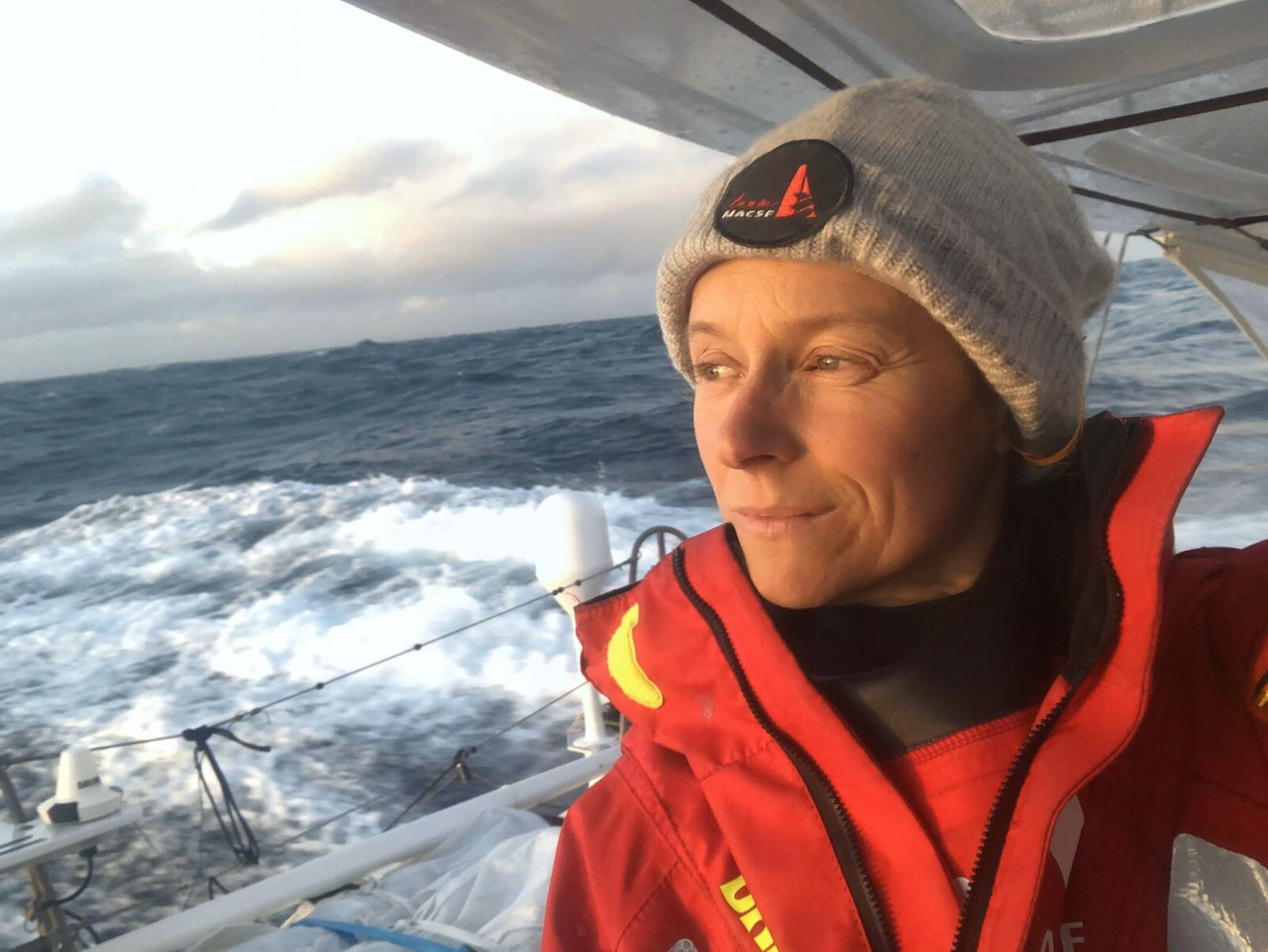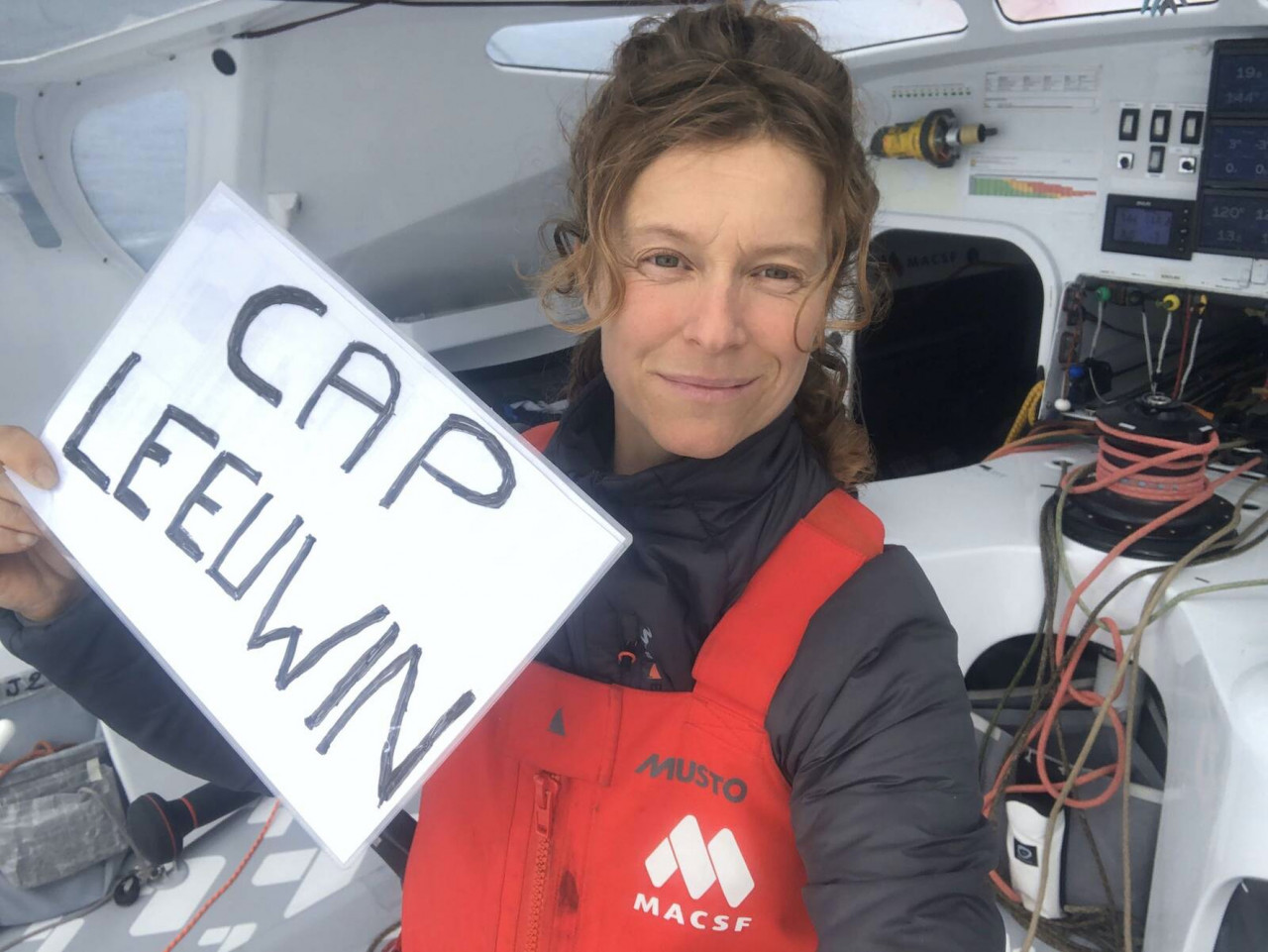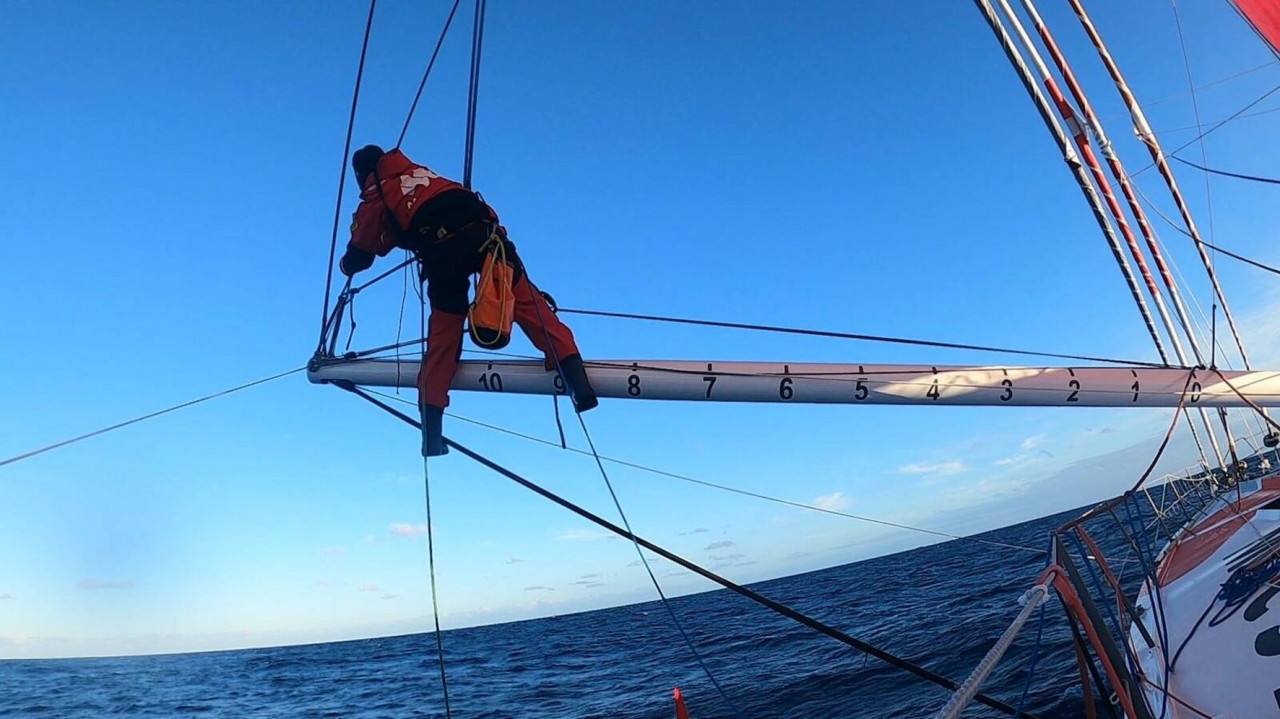Isabelle Joschke talks to the IMOCA Class about meditation, good food and life without books or even music

Anyone who has followed Isabelle Joschke’s progress from Figaro racing to Class 40s and then IMOCA Class competition, will not have been surprised to see her tenacious and competitive performance in this Vendée Globe.
The 43-year-old Franco-German skipper based in Lorient has been doing an excellent job keeping her 2007-vintage IMOCA up with the leading pack, having climbed from the mid-teens in the south Atlantic to the top-10 in the Southern Ocean.
Right now Joschke lies in eighth position just under 600 miles behind the leader, Yannick Bestaven, as she continues on her easterly heading just north of the ice exclusion zone about 600 miles due south of Invercargill in New Zealand.
The IMOCA Class caught up with Joschke to get her impression of this great adventure in her life as she looks to complete her first solo circumnavigation of the planet on board MACSF.
Having recovered from a series of setbacks in the Atlantic, including the loss of part of her pushpit when a gennaker block tore off, she is delighted to be – as she put it – back in the match.
 © © Isabelle Joschke / MACSF
© © Isabelle Joschke / MACSF
“I am so happy to be back in the top-10,” she said. “After a difficult start and descent in the Atlantic, it feels great to be in the match and back in the competition."
“But at the same time, it is not always easy to maintain the rhythm. There are moments when I am going fast and I am really on it and moments when I am tired or moments when I need to repair and maintain the boat, so there is a bit of everything.”
Joschke is a competitive individual. In the Atlantic she had to stop her boat a couple of times to carry out repairs and it annoyed her to see rivals sail on by. However, she is also trying to retain her focus on ensuring she gets round, all the way to the finish.
“I try to mentally break away from the race a bit, which allows me to unwind and also not push the boat too hard,”she explained. “I have been trying to keep to my initial intention at the start, which was to reach the finish without breaking my boat – to race wisely, I guess.”
We asked what life on board MACSF has been like and Joschke revealed that she has been practising mediation to help herself relax. This was not the original plan but the MACSF skipper has mislaid her e-reader tablet somewhere in the boat, so her passion for the written word is permanently on hold. At the same time, power issues on the boat means she also cannot listen to music, another pleasure she would normally indulge in.
“I don’t have many moments to escape, so this has forced me to mediate,” she explained. “I don’t usually mediate on board as the boat moves around all the time and that is hard. But this has allowed me to escape from the race a bit.”
Another distraction and source of enjoyment for her is the food on board which Joschke says is of excellent quality, even if it is freeze-dried. “I have been on board for one-and-a-half months and still I don’t complain about what I have to eat,”she said. “I have fun cooking; when I have five minutes between manoeuvres, I can make a small desert or something to change things a little. That is what I enjoy.”
 © © Isabelle Joschke / MACSF
© © Isabelle Joschke / MACSF
Joschke shared a vivid description of the southern Indian Ocean as she tackled it for the first time. “I was incredibly surprised by it,”she said, “by the brutal winds and the sea state. For several days the conditions were very difficult, making life hard on board and very tiring physically."
“I found the Southern Ocean as people said it would be,” she added, “magnificent colours, a wild ocean, a beautiful swell. But I didn’t expect, or I never thought, the sailing would be so difficult.”
On that point she says she has completely changed the way she sails her boat to take account of the conditions in the big south and to maintain her focus on trying to preserve her gear for the entire race.
“Each manoeuvre is thought through,” she said. “When I unroll a sail, I do it slowly, something which we never do normally. I do everything slowly; I am trying to slow down the sailing and the manoeuvres, so as to be sure not to put a strain on the boat.”
And all the while her focus is on getting past Cape Horn. “I am trying to see the Southern Ocean as a passage and when I reach the end it will be like a new start,” said the woman who is on course to become only the seventh female skipper to complete the Vendée Globe. (The others are Catherine Chabaud, Ellen MacArthur, Anne Liardet, Karen Leibovici, Sam Davies and Dee Caffari).
Ed Gorman
Teams info
Claire Vayer: Momentum on solution-finding by MMAG is building
Awareness and progress towards finding solutions to the problem of boats hitting marine mammals at sea is growing, according to Claire Vayer, Sustainability Manager at IMOCA.
•••Lunven and Soudée on the dockside in Lorient: preparing for a classic north Atlantic passage
Once again La Base marina in Lorient, Brittany – the main home of the IMOCA fleet – is a hive of activity as 33 boats and their skippers prepare for the daunting challenge of the North Atlantic alone.
•••